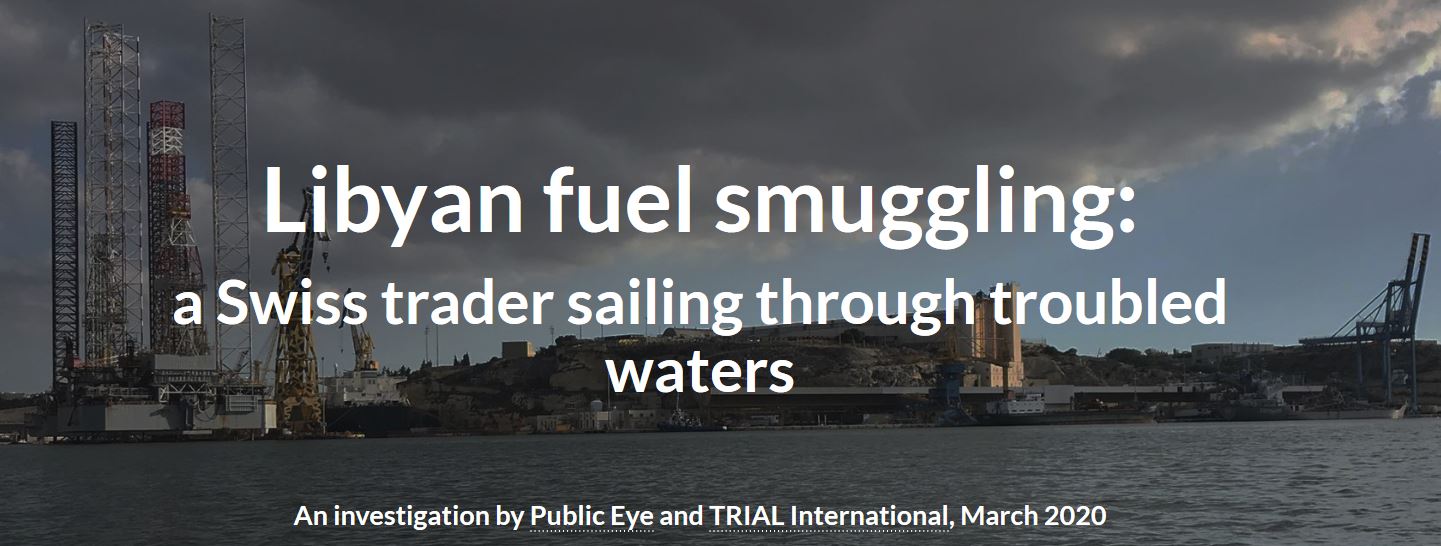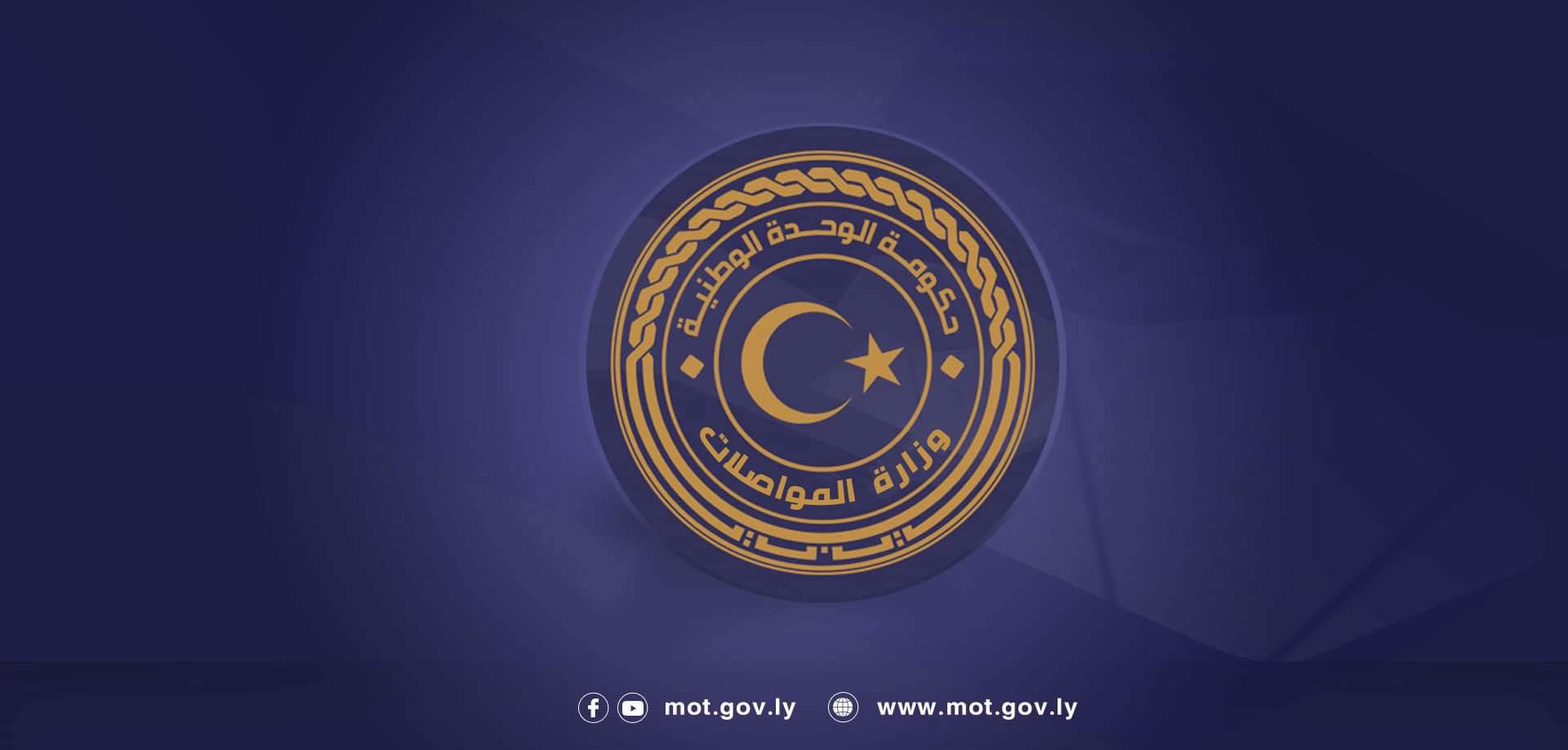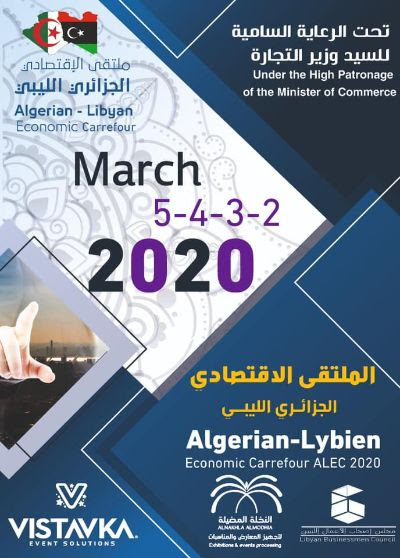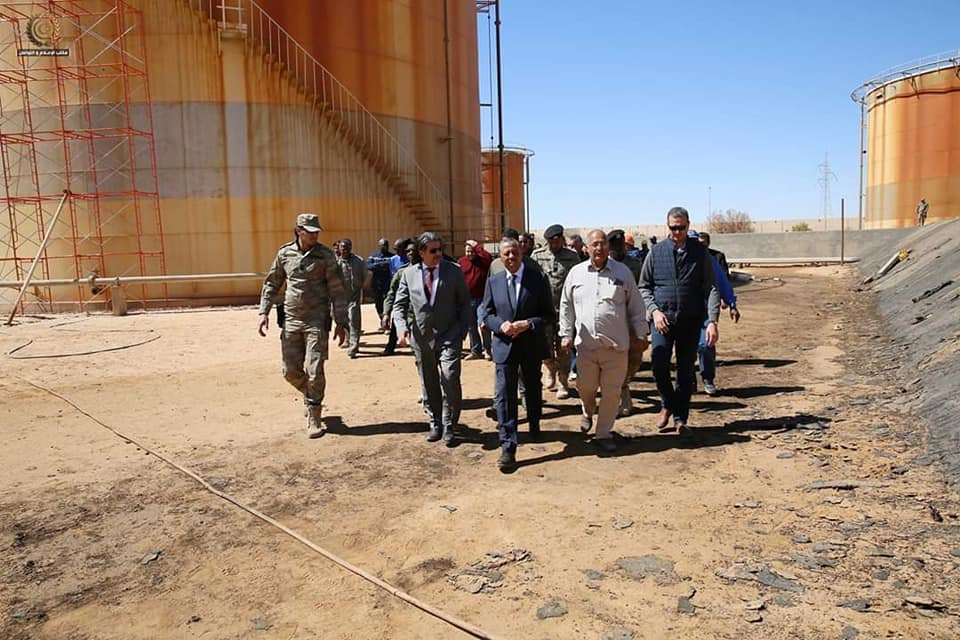By Sami Zaptia.
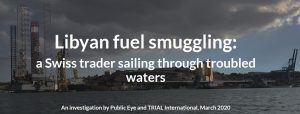
London, 2 March 2020:
An investigation spanning over a year by Public Eye and TRIAL International in Switzerland, Malta and Sicily revealed that Swiss company, Kolmar Group AG, a large fuel and biofuels trader headquartered in Zug, has been involved in the illegal smuggling of Libyan fuel.
According to the findings of the report published today, Kolmar received over 20 shipments of marine gasoil from Libya between the spring of 2014 and the summer of 2015. The company was supplied by a network of questionable individuals: Fahmi Ben Khalifa – alias ‘Fahmi Slim’ – previously condemned of drug trafficking in Libya, and his partners Darren and Gordon Debono, two Maltese businessmen. The gasoil was delivered to storage units rented in Malta by the Swiss company, the report says.
It will be recalled that in March 2016, the UN panel of experts on Libya identified Fahmi Ben Khalifa as the head of one of the most active fuel smuggling cartels in Libya. In the autumn of 2017, Catania’s Guardia di Finanza – a Sicilian police branch under Italy’s Ministry of Economy and Finance – managed to dismantle the network in its entirety. Libyan, Maltese and Italian nationals stand accused: Fahmi Ben Khalifa, Darren and Gordon Debono and seven other individuals have been charged with ‘transnational conspiracy to launder gasoil of illicit origin and fraud’.
Their trial, which started in autumn 2018, is still ongoing in Syracuse, Sicily; the verdict is due to be announced in 2020. The accused face sentences of up to 20 years in prison. However, today’s report says that to date, Kolmar has not been brought into the case, despite the information brought to light by the Sicilian police.
The report reminds that if any company knowingly purchases a commodity that was stolen from a country at war, that company could be guilty of pillaging (or of complicity in pillaging), a war crime under the International Criminal Court’s Rome Statute (Article 8 (2)(e)(v)) and Swiss criminal law (Article 264g (c) of the Swiss criminal code).
The Public Eye and TRIAL International’s report says that its investigation shows that the Libya’s internationally recognized National Oil Corporation (NOC) did not authorise the export of any fuel from its Zawia refinery, and that it was the Shuhada al Nasr Brigade, an armed group accused by the UN of exploiting and smuggling migrants, which allowed such fuel to be smuggled for its financial gain.
The Italian investigators uncovered the network of front companies established by Ben Khalifa and his associates to smuggle Libyan fuel into Europe via Malta and Italy. All of that coupled with the bank statement showing that Kolmar paid over USD 11 million to Maxcom Bunker in just over a month, most likely in exchange for the offloading of fuel into Kolmar’s onshore storage units in Malta, which the report was able to trace in its investigation.
As a result of its investigations, the report says that its findings show that first, fuel was stolen from a country (Libya) at war and secondly, received by Swiss company Kolmar despite what it called many red flags. Given these findings, the report says that it is possible that Kolmar committed or aided and abetted the international war crime of pillage.
Beyond the question of Kolmar’s criminal liability, the report says that this set of events provides a striking example of how Swiss traders’ can profit from highly volatile situations. While civil war was raging in Libya and armed groups were fighting for control of the oil sector, the Zug-based company chose to do business with a tiny and obscure Maltese company with no experience in the oil business – even though the trading sector was aware of both the smuggling of Libyan fuel and the role played by Malta in relation to smuggling activities. The Kolmar case also demonstrates that deals between well-established trading companies and smuggling networks can take place, the report adds.
The report criticises the banks involved in these transactions and says that they did not conduct sufficient due diligence. It says the case demonstrates that it is unrealistic and irresponsible to rely on the banking establishment to exercise ‘indirect supervision’ over traders. The report proposes a number of measures to mitigate the illegal trade in commodities including calling for the imposition of better due diligence obligations on traders, in particular with regard to their business partners.
